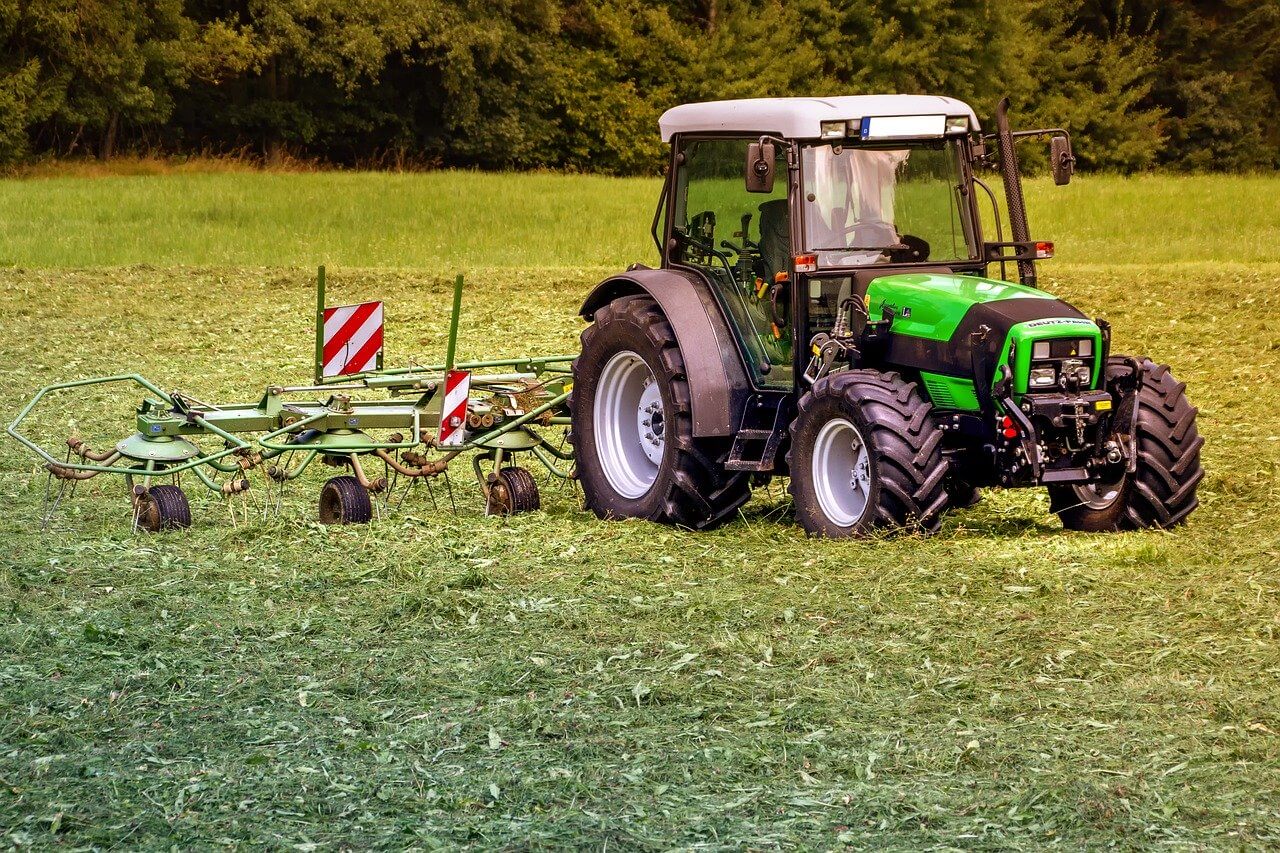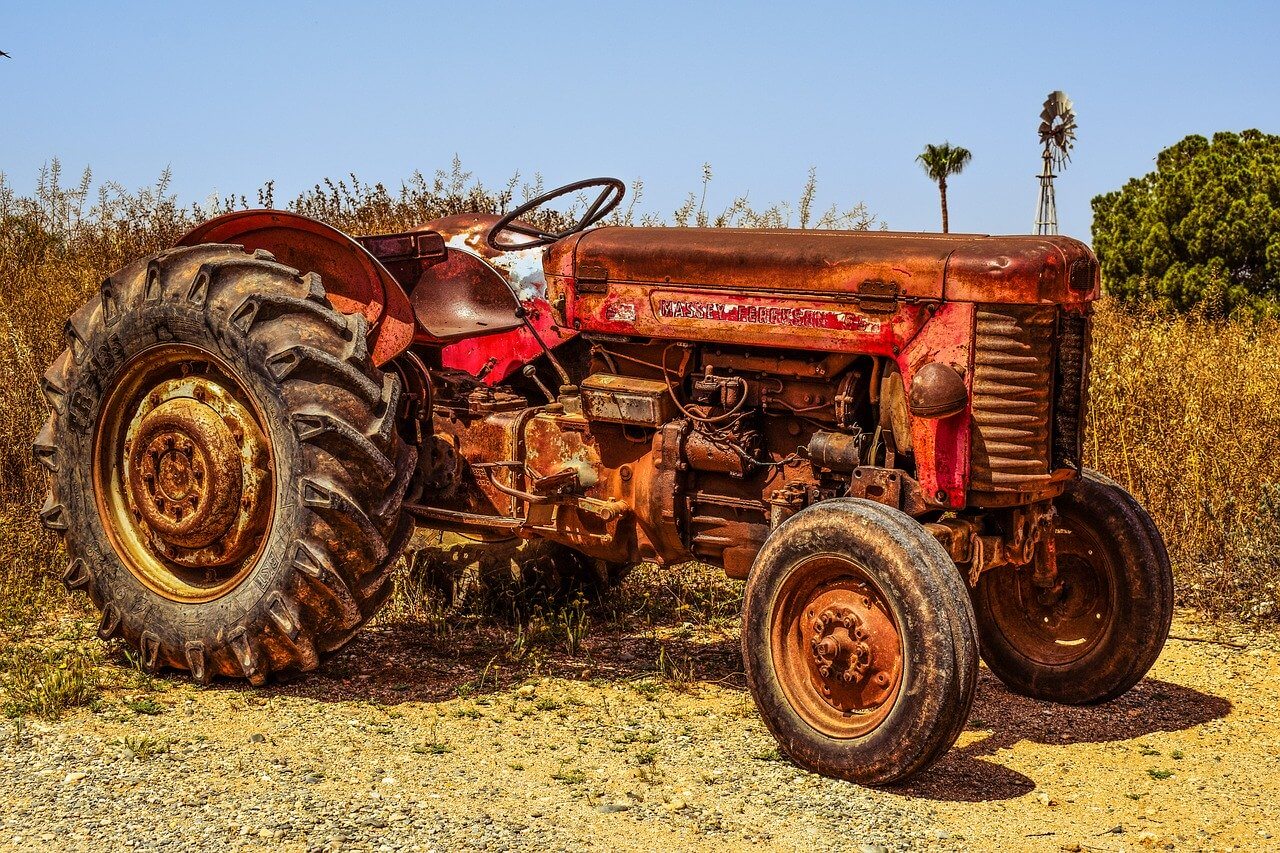If you’re planning on selling your tractor, it’s important to ask yourself, “how much is my tractor worth?” Not only will this help you get an idea of what a fair price for your equipment might be, but it will also come in handy come tax time. In this post, we’ll give you information on how to come up with a reasonable and accurate estimate of your tractor’s overall worth.
What You'll Learn Today
Why Do You Need to Know How Much Your Tractor is Worth?

A tractor is an invaluable tool on the farm. In fact, even if you’re just farming on a small scale, you’ll likely find that it’s a necessity that you really can’t do without.
However, tractors aren’t always easy to come by, nor are they cheapest. Once you have a tractor, it’s important to know how much it’s worth for several reasons.
The first is if you ever decide to sell your tractor. Having at least a rough idea of how much you can get for it is essential if you want to get the best deal.
In many cases, it’s also important to know how much your tractor is worth in case you run your farm as a business and want to claim business expenses on your taxes. A tractor can be claimed on your taxes in several ways (it can be “leased” from your personal records to your farm, or its value can be depreciated over time).
It’s also important to know how much your tractor is worth for insurance purposes. You’ll need to have a rough idea of your tractor’s value should you ever need to file a claim.
What’s a Tractor Worth On Average?
If you have a brand new tractor, you’re in luck – it’s incredibly easy to figure out how much it is worth. Often, you can get a rough idea of what a new tractor might cost or be worth simply by looking at its make, model, and engine power.
A tractor with an 80hp engine will likely cost $50,000 (a rough estimate). With 100hp, you can expect to pay $50,000 to $75,000, while one with a 100-150hp can cost $100,000 to $150,000.
Of course, these are estimates and there are always other variables that can affect how much money you’ll get for your tractor. In some cases, tractors used for large scale crop farming cost $400,000 – or more!
Naturally, extra options that you might have added on to your tractor, like a backhoe, loading bucket, forks, or bale spears might add more unto the price. Certain cab features like canopies, ergonomic seating, heating and cooling, and even Bluetooth compatibility can affect this, too.
If you’re buying a tractor and aren’t sure what size is right for your farm, this video will help clear things up for you.
Once you get into used tractors, that’s where things get a little murkier. With second-hand tractors, there are many more variables involved. You’ll have to pay closer attention to make, model, and engine size but age and condition are also going to heavily come into play here.
Tractors depreciate quickly – we’ll give you more information on this later – so it’s often quite easy to get a good deal on a gently used tractor that isn’t even that old.
They also tend to be easier to fix than newer tractors, which have more computers and sensitive software systems installed. Because maintenance costs are lower on used tractors, the overall selling price is often more affordable, too.
You’ll find secondhand tractors for sale at anywhere between $2000 for basic models with low engine power and a lot of hours all the way up to $75,000 for some of the more advanced.
How Do I Find the Value of My Tractor: 3 Helpful Tips

There are several ways you can find the value of your tractor. If it’s brand new, this will likely be much easier than if it is a few years old (or more).
1. Is There a Blue Book for Tractors?
When you try to sell a used car, you can look up its Blue Book value to determine its approximate worth. The Blue Book value takes into consideration the vehicle’s make, model, age, and condition in order to give a rough value.
Unfortunately, this is not an option for tractors, as there is no Blue Book. Tractors are often overvalued or undervalued by their owners, which makes it tough to put a value on them.
However, when you’re trying to find the value of your tractor, the closest thing to a Blue Book that you can do is to attend a farm machinery auction. This will give you a rough idea of how much tractors that are similar to yours are selling for.
It’s important to remember, though, that tractor worth varies widely, with prices impacted by the year and economic conditions, the location, and dealership support.
2. Used Tractor Value Calculators
Going to a farm auction is the most reliable way to figure out how much your tractor might be worth (aside from having it appraised by a dealership, of course).
However, that’s time-consuming. If you want to get an initial rough estimate of how much your tractor is worth, the good news is that there are all kinds of used tractor value calculators online.
Some to consider include:
All of these use a variety of mechanisms (such as data aggregated from online adverts placed by other farmers looking to sell their tractors) to figure out how much your tractor is worth.
Some of these sites, like Digitrac, offer other farm-related services as well. You may even be able to use these sites to sell your tractor or purchase other farm equipment.
3. Understand Depreciation
Depreciation is a term that you may have heard used in the context of buying a car, and it applies to buying a tractor, too. Every kind of machine, from a truck to a trailer to a tractor, undergoes the process of depreciation.
Depreciation is the allocation of the cost of an asset over the time it is being used. Most calculators estimate that tractors depreciate at a rate of 8.3% per year.
This is an average but based on tax laws that determine how much of your tractor’s worth you can claim as an asset or expense on your tax returns.
Most tractors are estimated to last 10 to 15 years, but again, this can vary.
Where is the Best Place to Sell a Tractor?
There are several ways you can sell a used tractor – there is no single “best” way.
The easiest way to sell a tractor is to trade it in to a dealership when you buy a new tractor. This will allow you to put the price of the sale of your tractor toward the cost of a new one. It’s just like trading in a new car.
You can also turn to online platforms to sell your tractor. In addition to the resources cited above, you can list your tractor on places like Facebook Marketplace or Craigslist.
There are also tractor-specific sales websites, and a quick Google search should help you find the best sales website for your needs.
Of course, classic options like selling it at a farm auction, listing it in the newspaper classifieds, and selling via a local ag-weekly publication are options, too.
Are Old Tractors Valuable?

Just because your tractor has a few years (or maybe more than a few years!) on it, that doesn’t mean it isn’t valuable.
Often, older tractors are just as valuable (if not more so) than new ones because they are so easy to repair. Parts are still quite easy to get from the dealership, too, which is something else that adds to their value.
Plus, don’t overlook the fact that many people like to collect antique tractors!
If you have a tractor and don’t know how much it’s worth, or regardless of its age, the tips above should help you get a good idea of an estimate. With those numbers in mind, you’ll be able to get the best possible selling price for your equipment.